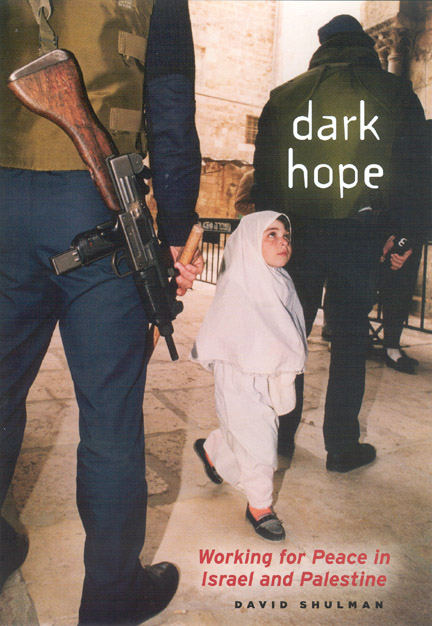Hope in the dark?
 News agencies around the world are reporting today that more than 1,000 Palestinians have now died in Gaza as a result of the battles that continue even as diplomats report progress in efforts to establish a cease-fire.
News agencies around the world are reporting today that more than 1,000 Palestinians have now died in Gaza as a result of the battles that continue even as diplomats report progress in efforts to establish a cease-fire.
The images that accompany these reports are saddeningly familiar: for decades, we’ve looked from afar at images of violent clashes between Israelis and Palestinians in the West Bank and Gaza. But for all the harrowing power of these images, it is still nearly impossible for many people to imagine the struggles of those living in the midst of the fighting. In Dark Hope: Working for Peace in Israel and Palestine American-born Israeli David Shulman takes us right into the heart of the conflict with an eye-opening chronicle of his work as a member of the peace group Ta‘ayush, which takes its name from the Arabic for “living together.”
Though Shulman never denies the complexity of the issues fueling the conflict—nor the culpability of people on both sides—he forcefully clarifies the injustices perpetrated by Israel by showing us the human dimension of the occupation. Here we meet Palestinians whose houses have been blown up by the Israeli army, shepherds whose sheep have been poisoned by settlers, farmers stripped of their land by Israel’s dividing wall. We watch as whip-swinging police on horseback attack crowds of nonviolent demonstrators, as Israeli settlers shoot innocent Palestinians harvesting olives, and as families and communities become utterly destroyed by the unrelenting violence of the occupation.
This excerpt exemplifies Shulman’s searching attempt to discover how his beloved Israel went wrong—and how, through acts of compassionate disobedience, it might still be brought back.
And Shulman, of course, is far from the first to delve into an aspect of this long and complicated story: Martin Buber’s A Land of Two Peoples collects his writings that advocate for a binational state while Nadia Abu El-Haj’s Facts on the Ground: Archaeological Practice and Territorial Self-Fashioning in Israeli Society (excerpt) explores the relation between archaeology and Israeli national identity.